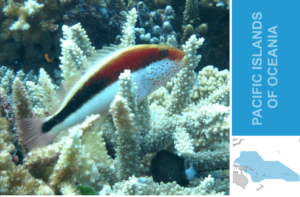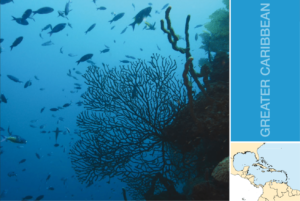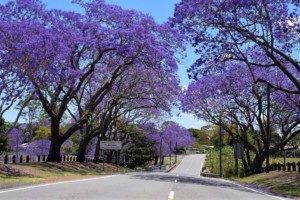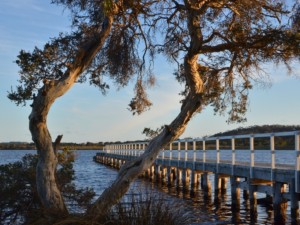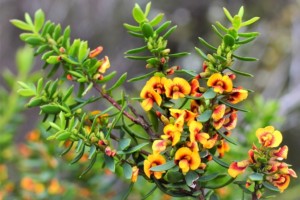A PM appointed IY2017 ambassador … oh, and food fish are going extinct
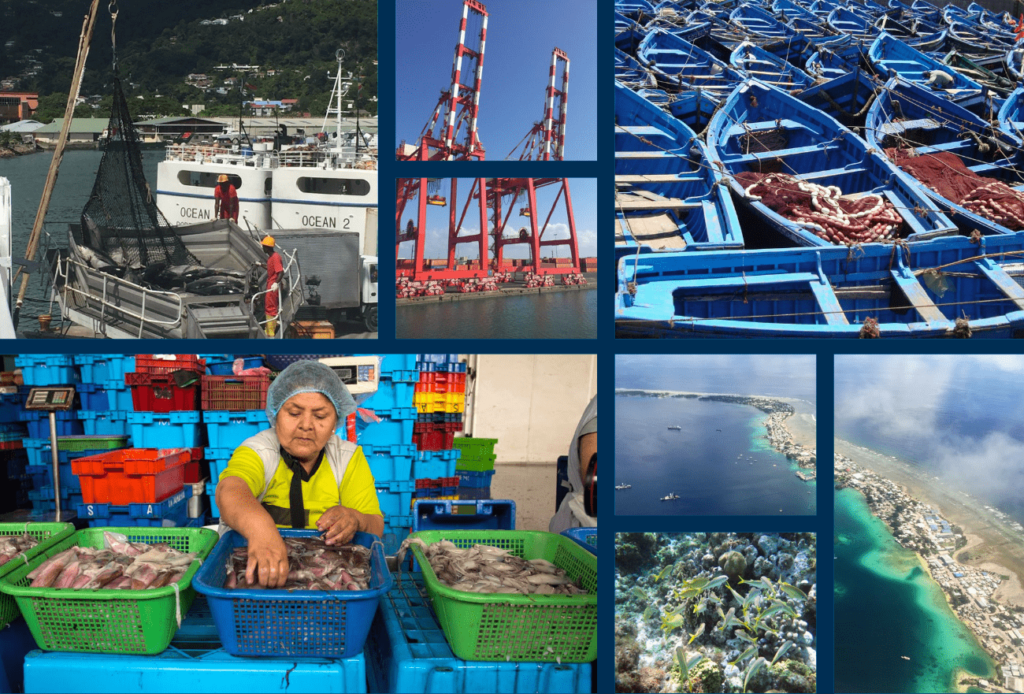
The ceremony took place in New York on June 7 “on the sidelines” of the UN Ocean Conference, where the PM addressed participants on the value of tourism to sustainably advance the “blue economy” …
We interrupt this news …
The World Bank defines the “blue economy” as “the range of economic sectors and related policies that together determine whether the use of oceanic resources is sustainable”.
Within the UNWTO press release announcing the Samoan PM’s ambassadorship was the explanation that the Ocean Conference is “an opportunity to highlight how tourism can effectively contribute to Sustainable Development Goal 14, ‘Conserve and sustainably use the oceans, seas and marine resources for sustainable development’”.
“While tourism is included in three of the SDGs – SDG 8: ‘Promote sustained, inclusive and sustainable economic growth, full and productive employment and decent work for all’; SDG 12: ‘Sustainable consumption and production’ and [SDG 14], it can advance all 17 SDGs.”
UNWTO had joined the World Bank and the UN Department of Economic and Social Affairs (UNDESA) to launch the report The Potential of the Blue Economy: Increasing Long-term Benefits of the Sustainable Use of Marine Resources for Small Island Developing States and Coastal Least Developed Countries. (Find a link to download the report at the end of this post.)
According to the same UNWTO release, coastal and maritime tourism is one of the key sectors of the European Union Blue Growth Strategy. Such tourism has a ‘high potential for sustainable jobs and growth”. Tourism employs more than 3.2 million people and contributes more than one third of the maritime economy.
“The universal dimension of the SDGs provides the EU regions with the opportunity to show leadership and share best practices to extend and scale up their Blue Growth strategy in other parts of the world, and in particular through their island territories in SIDS regions,” the UNWTO explains.
And in other news …
Meanwhile, an International Union for Conservation of Nature (IUCN) press release dated June 8 warned that over-fishing and the degradation of coral reefs across the Caribbean and Pacific islands are pushing many fish, including food sources like tunas and groupers, towards extinction. This is according to two regional Red List reports published by the IUCN.
The Conservation status of marine biodiversity in the Pacific Islands of Oceania Red List report includes assessments of 2,800 marine species across the 22 island states and territories of Oceania, from Papua New Guinea to the Cook Islands – “a vast, species-rich but largely unexplored area”. The report shows that 11% of all assessed marine species in the region are threatened with extinction, including fish that are important food sources.
The Conservation status of marine bony shorefishes of the Greater Caribbean Red List report includes assessments of 1,360 marine bony shorefishes across 38 Caribbean countries and territories. Around 5% of marine bony shorefishes in the Caribbean are threatened due to over-fishing, invasive lionfish predation, and the degradation of coral reefs and estuaries, which provide habitats and feeding grounds.
According to the release, islanders in both the Pacific and Caribbean regions rely heavily on reef fisheries and other marine resources for food security and income generation. In Oceania, fish consumption rates are high at about 50 kg per person per year, as compared to about 8 kg per year for people living in continental areas such as Australia.
(Find links to download both Red List reports at the end of this post.)
We return to the news …
Back to the headline news preferred by UNWTO …
The new (ninth (9th)) Special Ambassador of the Year, Prime Minister of Samoa, Tuilaepa Sailele Malielegaoi, said: “The designation of 2017 as the International Year of Sustainable Tourism for Development was due to the recognition by the United Nations of the potential of the tourism sector to contribute to the fight against poverty, to help curb climate change, promote gender equality, and foster mutual understanding and peace amongst diverse cultures.
“Tourism is a sector that is vital to the livelihoods of our people and touches all the three dimensions of sustainable development: the social, economic and environmental aspects. As a people-to-people activity, it has helped and continues to contribute to the revitalisation of our culture, customs and traditional crafts, and plays a pivotal role in the preservation of our cultural heritage and is a force that promotes peace and understanding.”
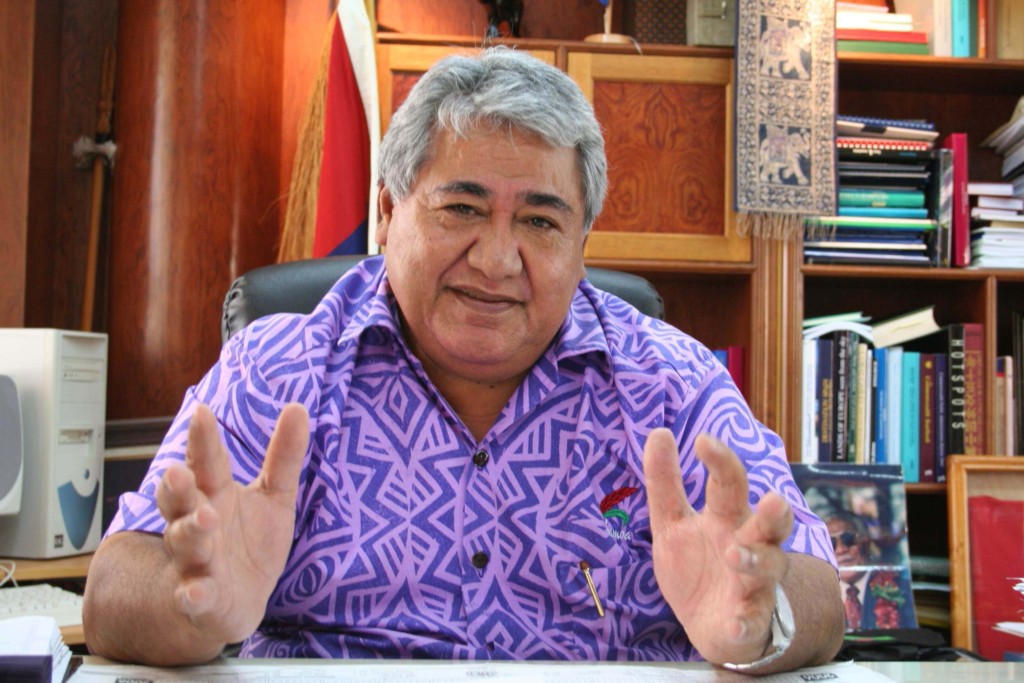
Samoan Prime Minister Tuilaepa Sailele Malielegaoi. Source: Wikimedia
UNWTO Secretary-General Taleb Rifai said: “The International Year is a unique opportunity to promote common action and enhance the power of tourism to build a better world. We thank Samoa for leading the initiative for the adoption of the UN resolution declaring the International Year and for its sustained, exemplary contribution in promoting the value of our sector towards the achievement of the 2030 Development Agenda, particularly for the Small Islands Developing States (SIDS).”
The Special Ambassadors of the Year are “leaders and prominent personalities” committed to promote the role and contribution of tourism in the achievement of the Sustainable Development Goals (SDGs) and the 2030 Agenda. They are:
- Tuilaepa Sailele Malielegaoi, Prime Minister of Samoa
- Juan Manuel Santos, President of Colombia
- Ellen Johnson Sirleaf, President of Liberia
- Luis Guillermo Solís Rivera, President of Costa Rica
- Mai bint Mohammed Al-Khalifa, President of the Bahrain Authority for Culture and Antiquities
- Simeon II of Bulgaria
- Talal Abu-Ghazaleh, Chairman of the Talal Abu-Ghazaleh Organization
- Huayong Ge, CEO of UnionPay
- Michael Frenzel, President of the Federal Association of the German Tourism Industry
Downloads:
The Potential of the Blue Economy : Increasing Long-term Benefits of the Sustainable Use of Marine Resources for Small Island Developing States and Coastal Least Developed Countries by the World Bank and UNDESA. (Hosted offsite.)
Conservation status of marine biodiversity in the Pacific Islands of Oceania Red List by IUCN. (Hosted offsite.)
Conservation status of marine bony shorefishes of the Greater Caribbean Red List by IUCN. (Hosted offsite.)
Related posts


